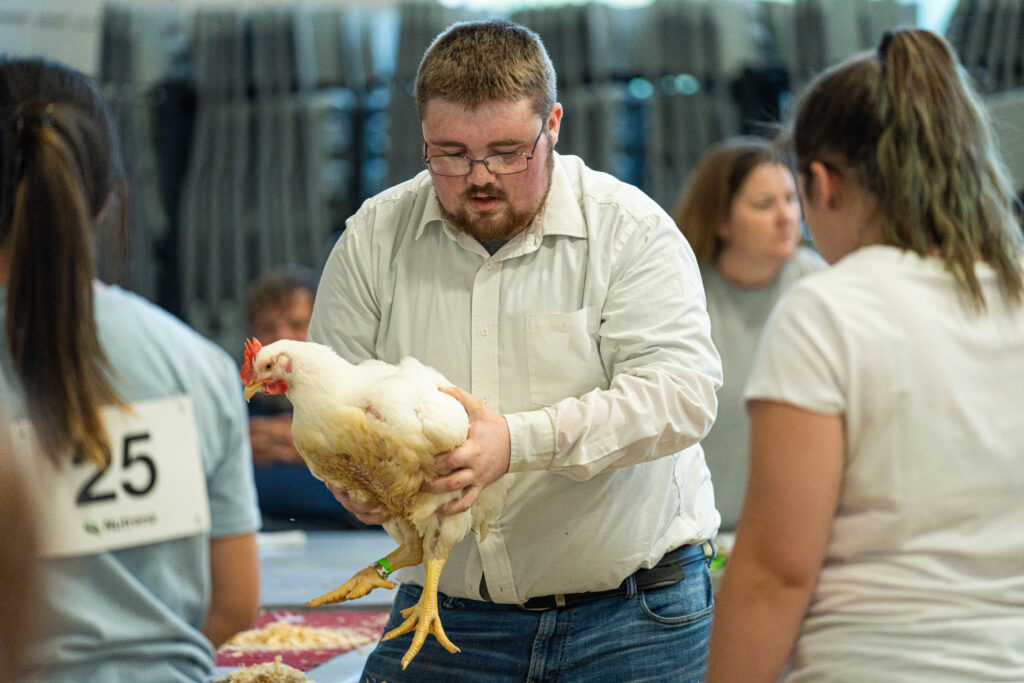MORGANTOWN — Despite COVID-19 canceling the Monongalia County Fair for the second year in a row, the Monongalia County Youth Livestock Show and Auction happened anyway this Friday and Saturday.
“We decided no matter what, these kids are going to have an auction,” said Monica Maxwell, member of the Monongalia County Fair Board and Livestock Committee. “So, we told the kids, ‘go ahead, raise your animal.’ …So, we never weren’t going to have an auction. If it killed us, we were going to have it.”
The auction is the culmination of an entire year’s worth of work for members of Future Farmers of America and 4-H, Maxwell said. In many cases, the kids raise the animal from birth to death.
Along the way the kids learn husbandry — how to show the animals, how to groom them and feed them.
The kids have a wide variety in choosing what kind of animal to raise. The show and auction featured cattle, goat, lamb, hog, rabbit, chicken and turkey.

Jones Tanton, 16, raised two turkeys and a goat for the show and auction. Tanton said he doesn’t have the land to raise cattle and goats are a nice alternative. Goats are more controllable and the turkeys work well with them because they come behind the goats and eat what they leave behind, he said.
The turkeys Jones raised aren’t the same kind one might see on the ride of a logging road. They are white instead of brown. Jones said they are a fast-growing commercial breed called broad breasted whites. In just three months, his two turkeys were just under 40 pounds and will likely provide about 25 pounds of meat once processed.
Jenna Ratke was at the show and auction with Rooster, a 1,290-pound market steer. She said 1,290 is about mid-sized.
Ratke said she’s been showing steers since she was 9.
“I just like making them grow,” she said. “It gets you a lot of experience on how to properly take care of an animal and you get to see different types of animals through here and like each have better qualities than others and you really learn from all that.”
Ratke used to raise hogs but said she prefers cows because you can connect with them more than any other animal.

The benefits of buying from the auction are “endless” for the consumer, Maxwell said.
“You know where your food was produced. You know your food is produced by a child who took care and lots of concern with that animal’s health and wellbeing from the beginning of the time it was in its hands,” Maxwell said. “That animal has been an educational tool. You’re paying for that child’s education. Now, and in the future.”
The kids learn how to calculate the profit they made in raising the animals they sell. Maxwell said many of the kids save the profit for college or a trade school while others reinvest it into more animals to raise.
“You’re buying quality … you’re investing in children that are going to be our future producers, our future leaders, our future, everything,” Maxwell said. “So you know where your food was made, you know where your food’s been handled, and you know, you’re putting something forward to get a kid farther along.”
TWEET @DominionPostWV




